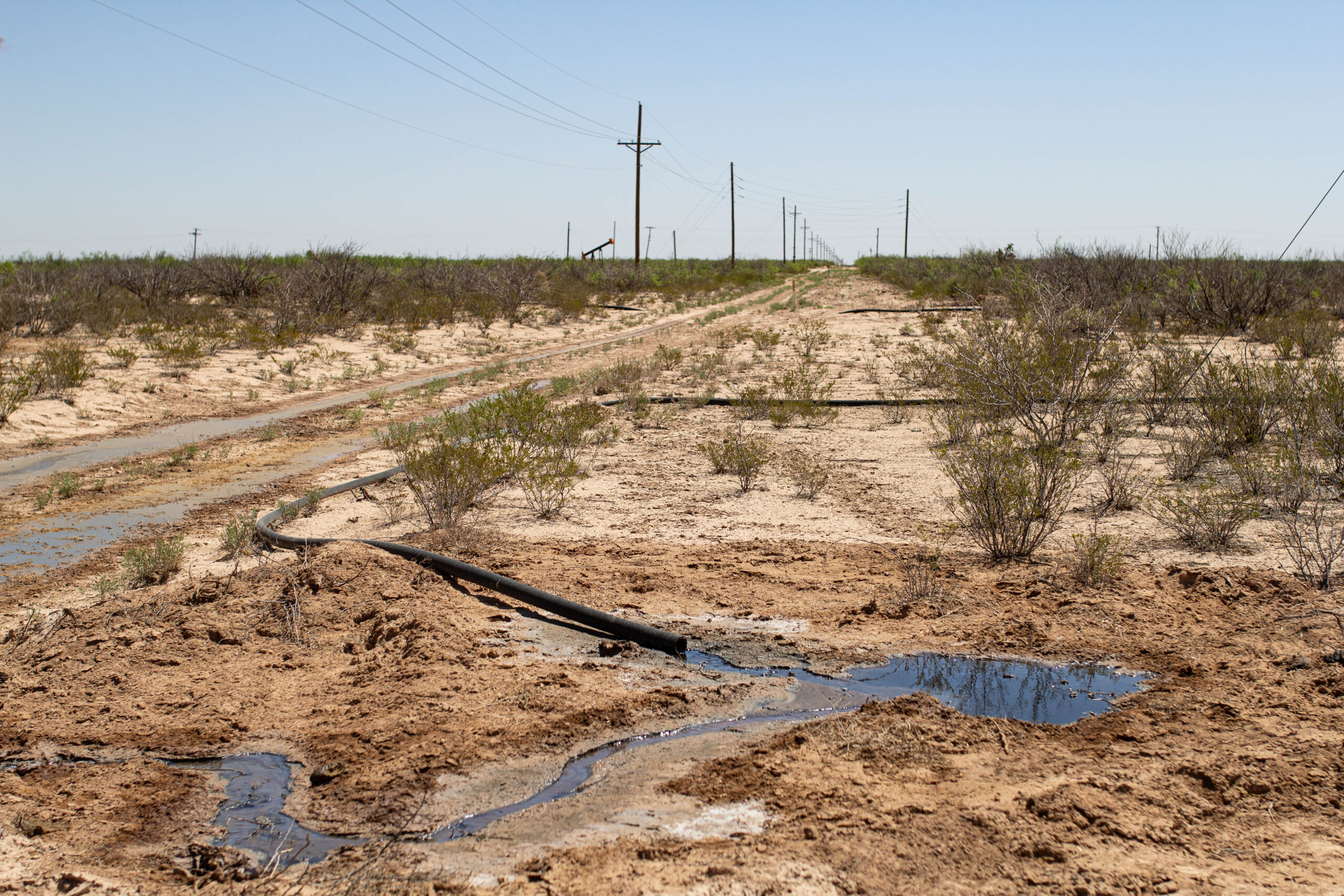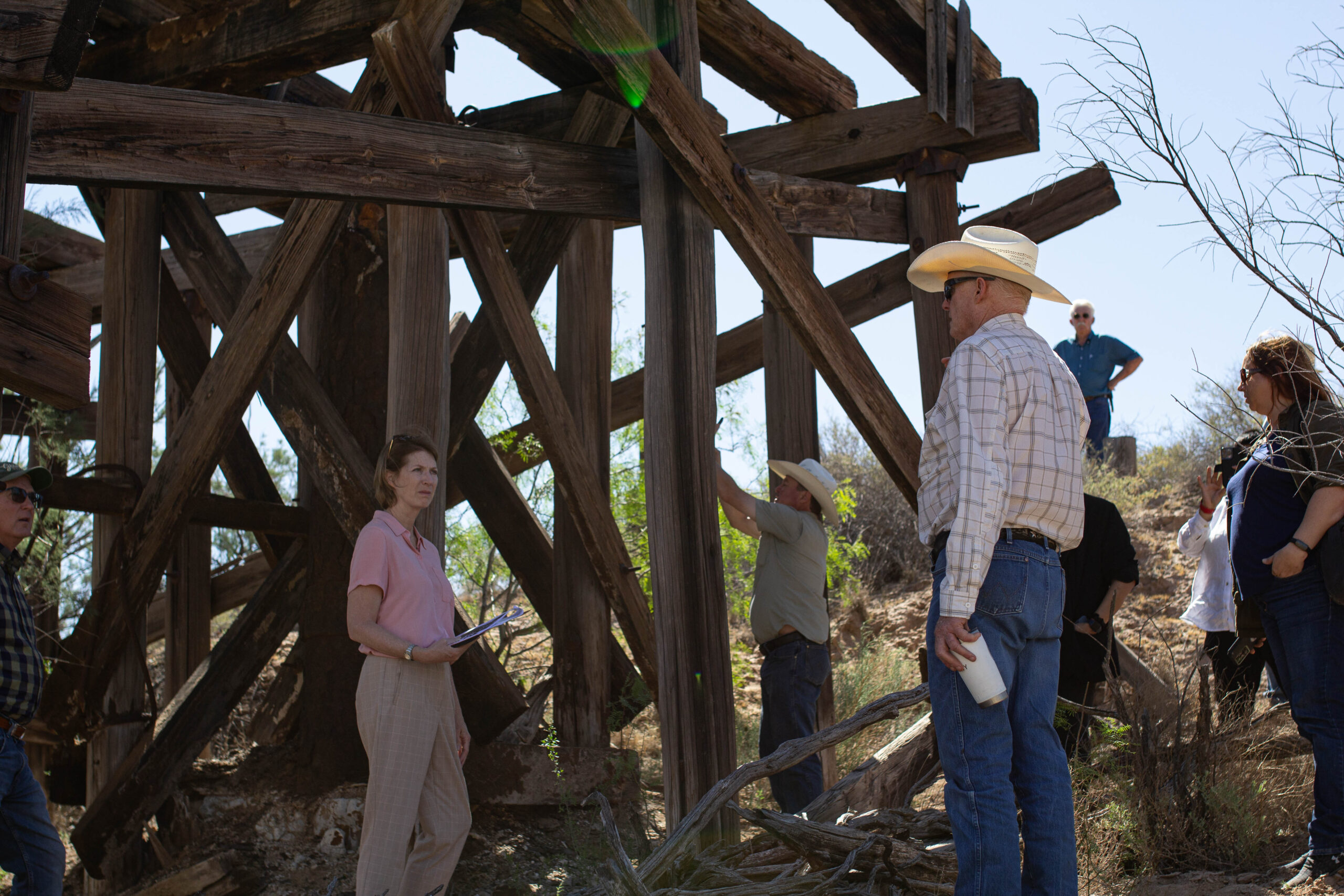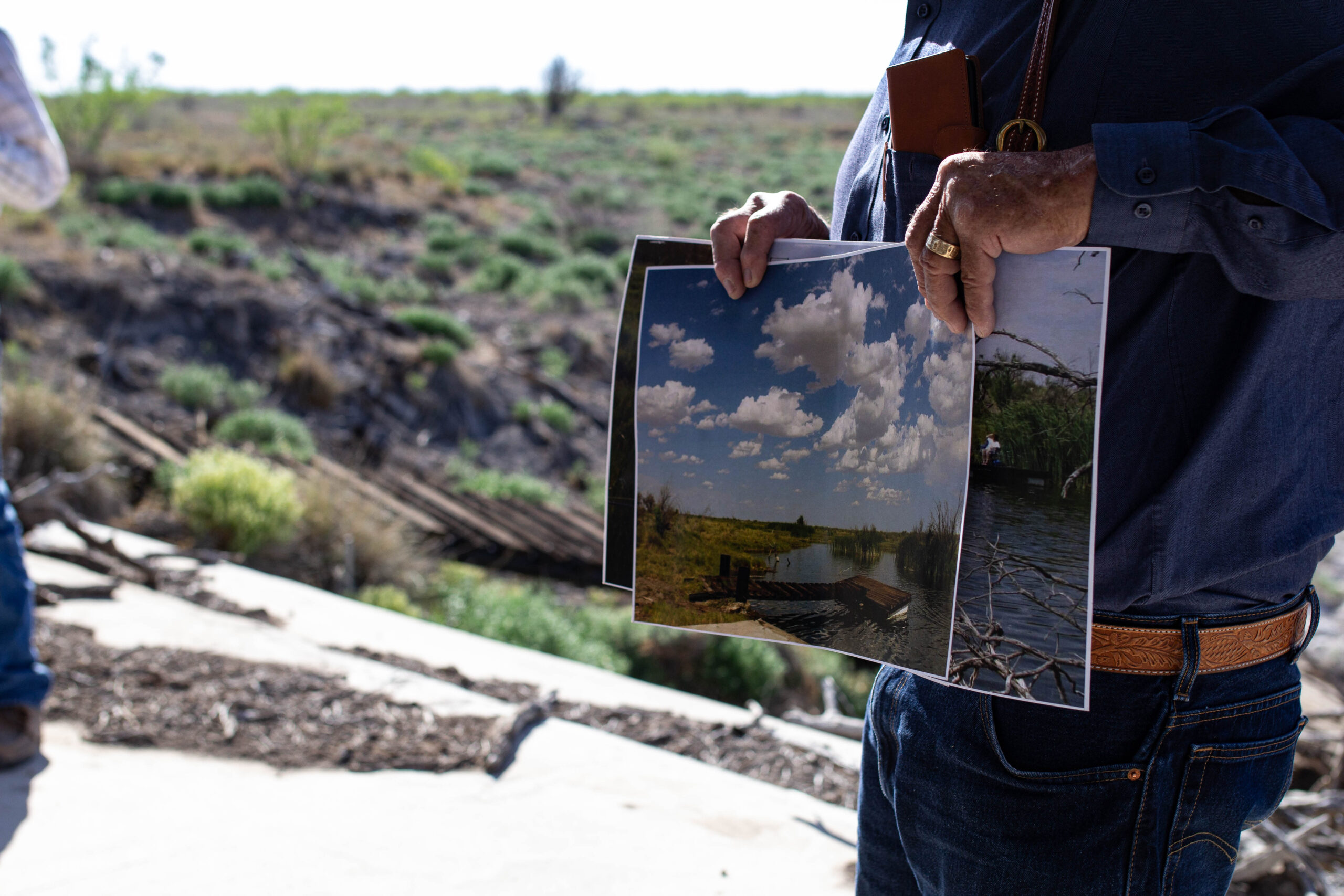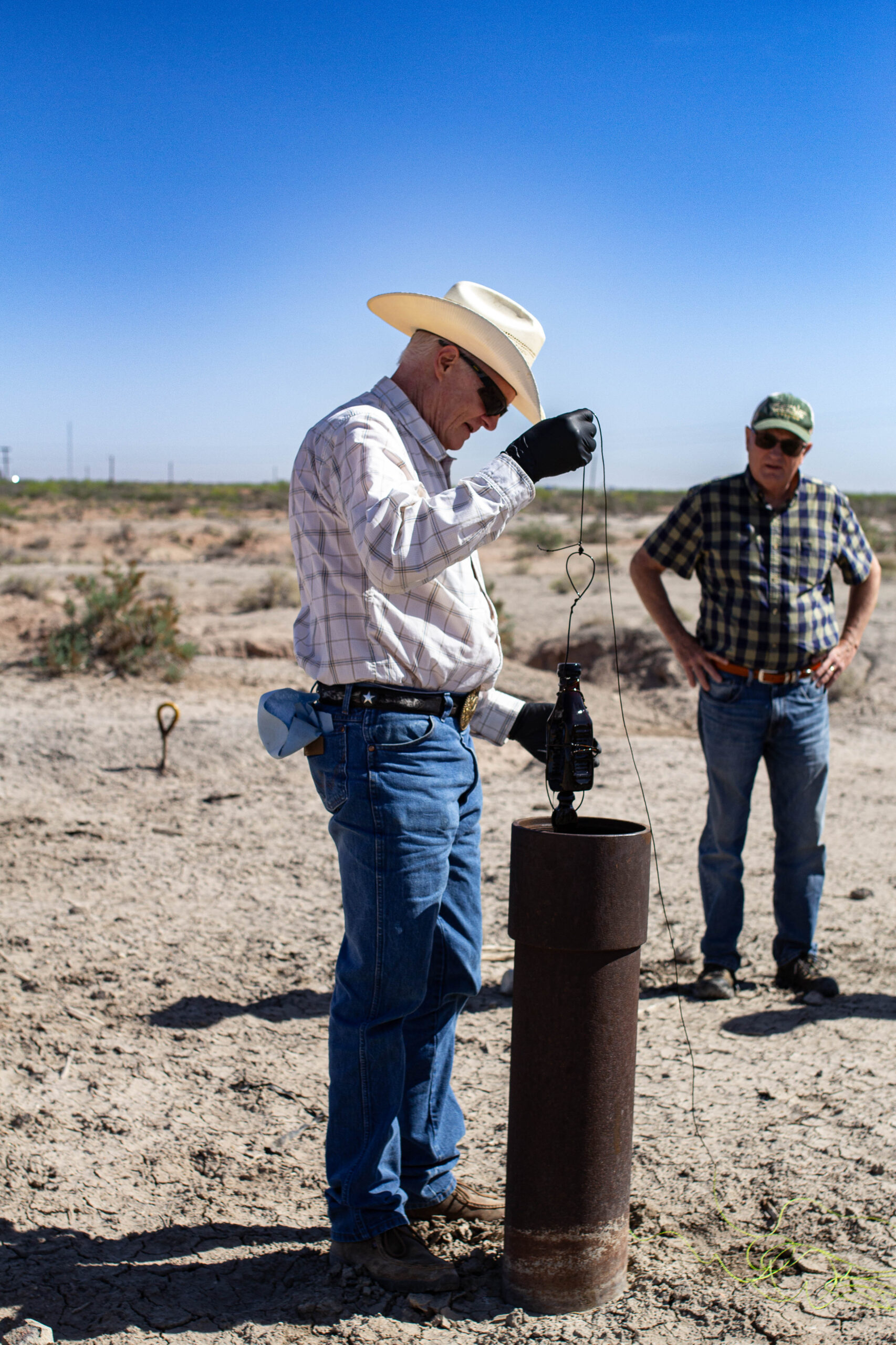Alyssa Wallace
Field Organizer
All photos in this post were taken by Alyssa Wallace.
On Thursday, May 2nd, 2024, a group of community leaders from West Texas hosted a guided tour of the Permian Basin for legislative staff and concerned community members to witness firsthand the impacts of orphaned wells in Texas. A majority of these wells, which have been abandoned by defunct operators, pose significant environmental and health risks, and our aim was to shine a light on the pressing need for remediation and policy intervention. As we gathered at the starting point, there was a palpable sense of anticipation and determination among the participants who were all eager to understand the scope of the problem and explore actionable solutions together.


Our first stop was Santa Rosa Spring, a once glittering water hole now dry because of the volume of fracking in the area. Landowner Schuyler Wight provided photos of what the Santa Rosa Spring looked like before fracking in the area became more prevalent: “What we are doing today is not sustainable.”

The next stop was also on Schuyler’s property. He pointed out an open well head which was used for oil extraction. About 15 feet away is a water well. Mr. Wight wrapped a rope around an empty bottle and dropped it in the water well, only to bring it back up full of oil.

Dennis McBeth, a retired oil well consultant, discussed the impacts of bad actors not plugging wells. The guides opened the floor for questions about well operators and plugging requirements.
Along FM 1053, attendees were able to see what happens when a poorly plugged or unplugged well acts as a pathway for water to travel into other formations. The Texas Department of Transportation spent millions of dollars to cap the well and to fix the road.
Attendees were shown Lake Boehmer. Immediately, the group could not only see the size of the issue, but smell it too. Mr. Wight discussed how initially the well spewing toxic water was for oil or gas production but was then converted to a water well and left unplugged. Hypothetically, the Railroad Commission’s Form P-13 states that if a well operator’s plug fails at some point, they are responsible for coming back to replug the well. If the operator has gone bankrupt and is no longer in operation, then the well could be considered an orphaned well, and the Railroad Commission would be responsible for plugging it. The RRC, however, has gone on record saying that landowners are responsible for plugging the wells, even if the operator’s plug fails, which places a disproportionate burden on landowners.
The tour served as a stark reminder of the importance of addressing orphaned wells and the critical need for policy intervention to prevent further environmental and health hazards. The discussions led by community leaders, landowners, and industry experts shed light on the complexities of the issue and emphasized the urgency for collaborative efforts to find sustainable solutions moving forward. By coming together and sharing knowledge and experiences, the group took a significant step towards raising awareness and advocating for necessary action to mitigate the impacts of abandoned wells in Texas.